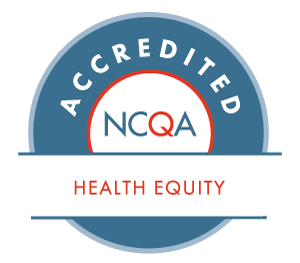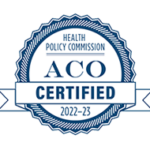AUTHOR
Kati Moran
Amidst recent major challenges—notably, a global pandemic and pervasive workforce challenges—innovations in care delivery have continued across our member FQHCs. What drives this innovation? C3’s mission statement—“to leverage the collective strengths of federally qualified health centers to improve the health and wellness of the people we serve”—can offer some insight.
One effective strategy to leverage the collective strengths of FQHCs is through the facilitation of learning communities. A learning community is a collaborative space where individuals with common interests or goals come together to share knowledge.
As we all transitioned into hybrid and virtual workspaces, the widespread use of virtual meetings via platforms like Zoom have fueled an appetite for connection and collaboration. Perhaps it’s no surprise the virtual learning communities have flourished during this period, allowing colleagues across FQHCs to connect and share ideas. Read on to learn more about various C3 learning communities and their role in innovation.
How can learning communities fuel innovation?
Learning communities facilitate the rapid spread of new knowledge and ideas, promote collaboration amongst participants, and give organizations insight into challenges and opportunities.
1. Learning communities accelerate the adoption of new knowledge across our FQHC community.
Each participant in a learning community brings their own unique set of experiences and expertise to the table. When a group of people come together to share their knowledge in pursuit of a common goal, progress and innovation are accelerated.
As part of the grant-funded Telehealth Transformation Initiative, nine Telehealth Project Managers came together on a weekly basis over the course of one year to share challenges and successes in the adoption of telehealth at their FQHCs. During those meetings they exchanged ideas, lessons learned, and concrete tools. For example, when one participant created a patient information brochure about telehealth, other participants adapted that brochure to meet their own health centers’ needs.
With the COVID-19 pandemic, adoption of new technology to support patient care was a necessity, not just a choice. Emergent tech businesses innovated and competed to meet this demand. Our Remote Patient Monitoring (RPM) Working Group brought together FQHC staff at various stages of RPM program implementation. FQHCs who were further along in the process shared their vendor selection rubrics and feedback to help those who were in the early stages of planning make informed choices about vendor partners, inspiring confidence and saving time.
As Emily Phillips, Telehealth Project Manager at Fenway Health explains, “Communicating and idea-sharing with colleagues at other organizations in the FQHC space has been invaluable in moving our work forward. These learning communities, like the RPM Working Group, have helped build relationships that I know I can count on to share best practices and strategies relevant to our unique telehealth needs which are steeped in our heavily mission driven work. In the non-profit space we are always looking for ways to innovate effectively and efficiently, C3 is helping to make that possible!”
2. Beyond knowledge-sharing, learning communities promote collaboration amongst participants.
During challenging and stressful times (like much of the past 3 years have been!) learning communities can offer a much-needed space for peer support. When a group of individuals who are working towards similar goals come together, it’s likely that many are facing similar challenges in their work. From rapidly pivoting to telehealth, to building Covid-19 testing centers, to launching vaccination campaigns, FQHCs have had to constantly innovate to meet the needs of their communities. This intense momentum can lead to a sense of change fatigue. Learning communities can help serve as an antidote to that change fatigue by providing space for peer support and giving participants an opportunity to build collaborative relationships with peers.
Michelle Rys, Research and Population Health Project Manager at Caring Health Center, describes the peer collaboration in the Telehealth Transformation Initiative (TTI) as a key element to advance her health center’s telehealth strategy. “I didn’t fully anticipate the enormous benefits of the TTI collaboration process. By coming together often and engaging in guided discussions with the other project members, I was able to quickly apply lessons learned and help keep our project moving strong. Especially as virtual care technology rapidly changes, participating in C3’s learning communities continues to be a critically important element in our overall project strategy.”
In addition to discussions about strategies to address quality measures, C3’s monthly Quality Workshops often feature acknowledgments and shout outs of recent staff successes and promotions. When learning communities foster nurturing environments in this way, participants feel more comfortable reaching out to their trusted thought partners for advice when new challenges arise.
3. Learning communities help organizations shed light on opportunities and areas for support and growth.
As a facilitator of a learning community, my primary objectives are to create a welcoming space where participants get to know one another and feel comfortable sharing and engaging in authentic conversation, while also keeping the group from straying too far from the topic at hand. However, an auxiliary objective is to identify ways to advance the learning beyond the facilitation of the learning community.
For example, when our team facilitated an RPM Working Group this summer, we found that many FQHCs were coming up against the same challenges and roadblocks in the implementation and expansion of RPM programs. This gave us insight into how we can provide the most effective support to advance this work. We learned that more knowledge and resources were needed to fully understand the RPM reimbursement landscape and that more staff capacity was needed to support patient enrollment in RPM programs. In response, our team researched reimbursement policies and developed a tip sheet that was shared with participants and in our Telehealth Playbook. When we received a grant to expand Phase 2 of our telehealth work, we decided to focus the funding on expanding our Telehealth Navigator program with the goal of empowering patients by increasing engagement with RPM programs and addressing barriers to digital equity.
Without the RPM Working Group and our other learning communities, we would not have been so confident about the scope of this grant and seen that this work was a ripe opportunity for care team and delivery innovation. Beyond accelerating adoption, promoting collaboration, and shedding light on opportunities and areas for support, learning communities help to reinforce our shared health equity vision and reminds us of why we do the work we do.





